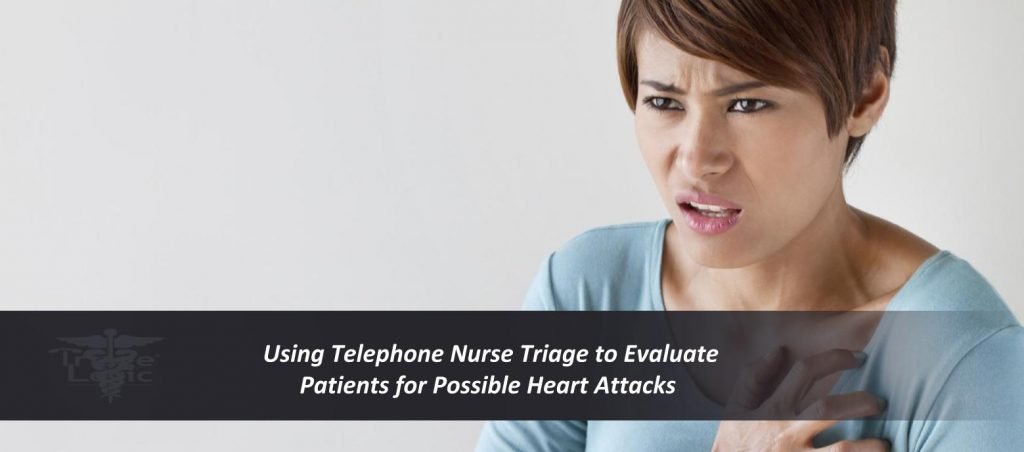Using Telephone Nurse Triage to Evaluate Patients for Possible Heart Attacks
Heart disease is the number one cause of death for women, yet many patients do not realize that they may have heart attack symptoms. These symptoms can often be subtle or imitate other ailments, such as influenza, nausea, or back pain. Therefore, telephone triage nurses must know the warning signs to help their patients get the correct care. Using quality triage software, nurses are able to efficiently evaluate patients for possible heart attacks which ensures that each caller reaches the correct disposition to receive the best care quickly.
TriageLogic nurses have taken many calls from patients with various symptoms that lead them to recommend immediate care at the ER for possible heart attack. There are the oblivious symptoms of a possible heart attack, including shortness of breath and pressure or pain in the chest. However, the symptoms can also start out subtle, especially in women, and may not even seem related, such as anxiety, dizziness, or back pain. Telephone triage nurses must listen carefully and be sure to ask about prior medical history to see if they believe a heart attack is possible.
Steps to Consider for a Patient with Vague Symptoms
- Where is the pain? Any pain between the neck and naval is considered chest pain until proven otherwise! A good triage nurse will start coming up with “working diagnoses” from the second he/she starts talking with the patient.
- Consider related symptoms. “Multi-thinking” is essential to coming up with the right plan of treatment at the right time to assure your patient has the best outcome. The nurse may think “Epigastric fullness can be from a heartburn, gas, hiatal hernia, gastritis or a heart attack”. Fatigue, on the other hand, can be from stress, acute or chronic illnesses, or insomnia to name a few. Although they may not be related, she should always take a moment to think “could these symptoms be related?” She should always think of the most common reason for the symptoms, gas, to the most urgent, a heart attack.
Not everyone with these symptoms is experiencing a heart attack, but any unexplained symptoms should be evaluated by a physician. Only blood tests, an EKG, and a physician can make that determination. It is the triage nurse’s job to use her protocols, her critical thinking skills, and her nursing knowledge to ask the right questions in order to make an educated decision about the safest disposition at that time for the patient.
For more tips and best practices for telephone triage nurses, subscribe to our blog.
What to Read Next: Triaging Heart Attacks Over the Phone





